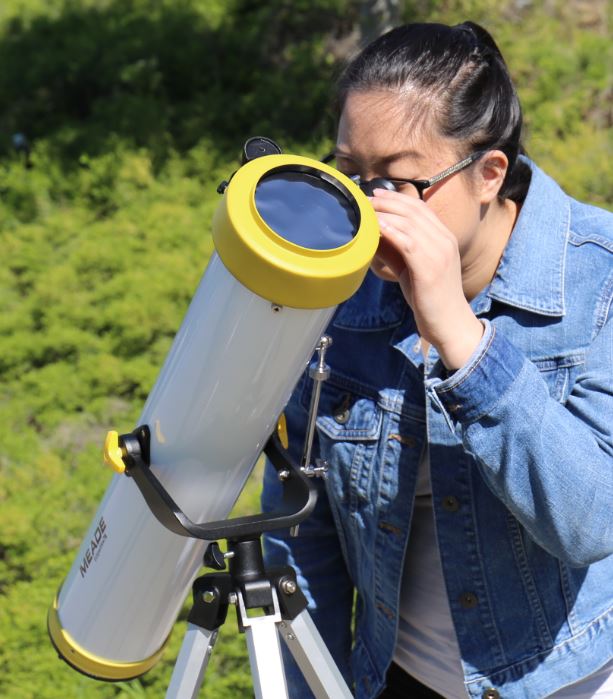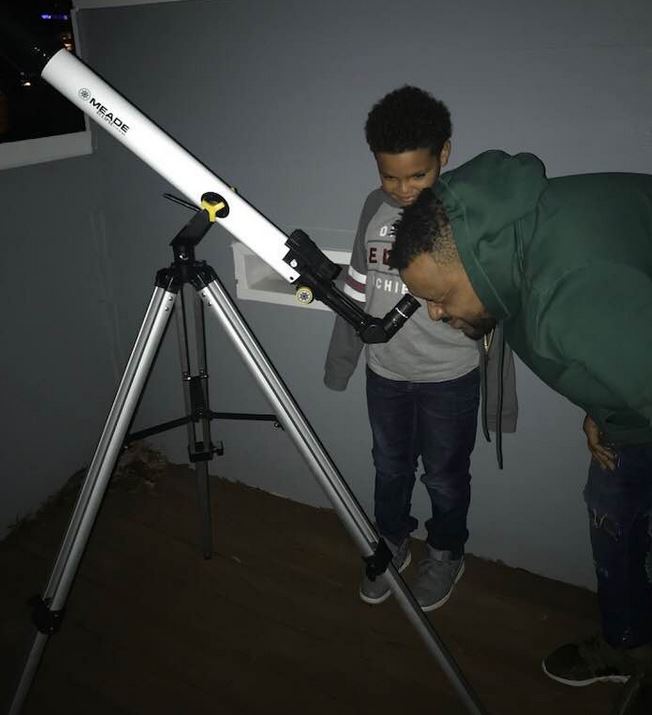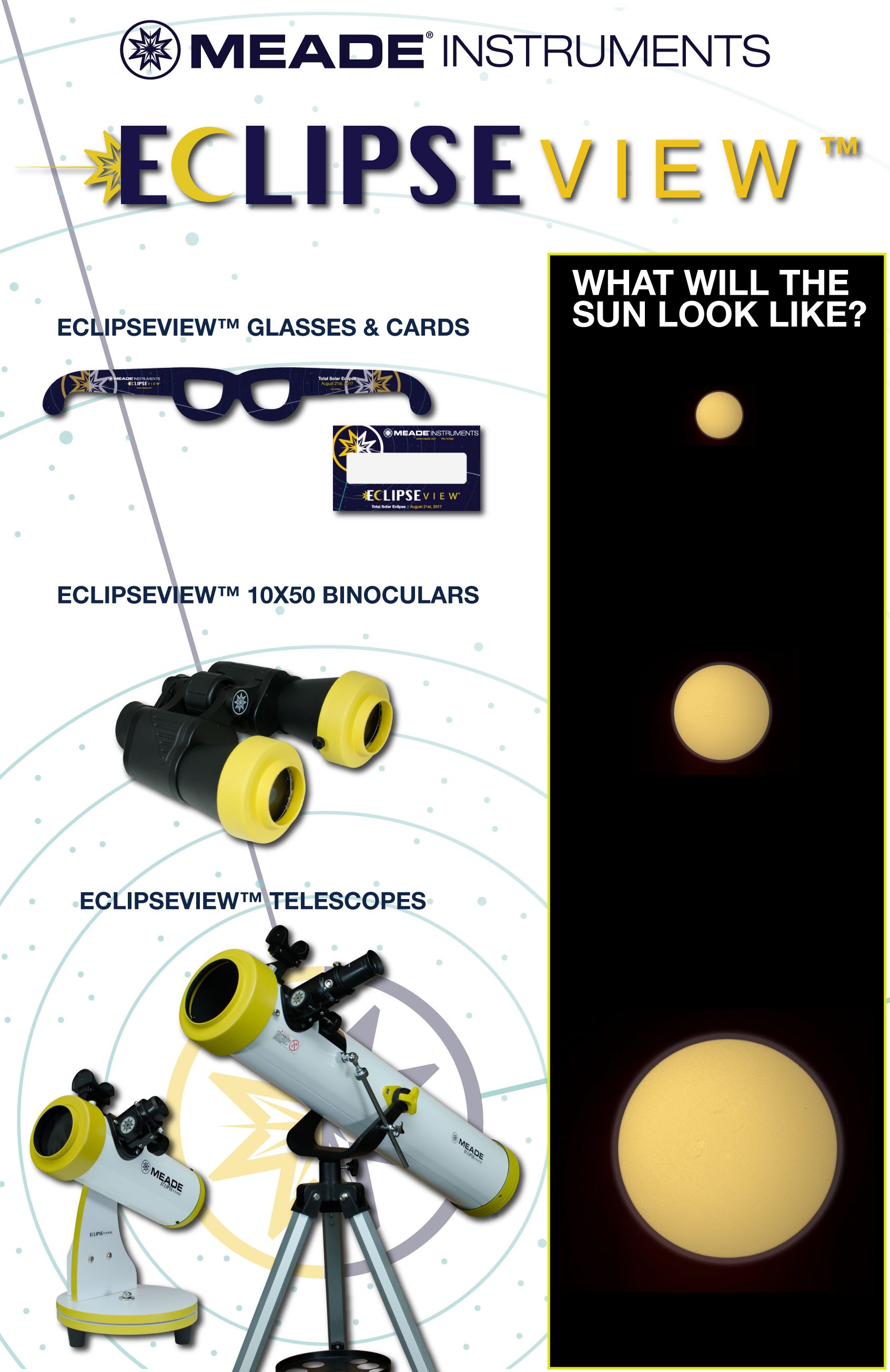Glossary | Telescopes | General | Series | EclipseView

EclipseView telescopes are lightweight and uncomplicated. They are ideal for a quick view of our solar system: the Moon, planets and the Sun!
The Sun may only be observed with optical instruments that are specially equipped for that purpose! The EclipseView telescopes’ accessories already contain everything you need to safely observe the Sun: simply insert the ISO-certified solar filter into the custom-made holder on the front end of the telescope. It ensures that only a tiny fraction of the Sun's light enters the instrument. With this white light filter in place, the Sun’s photosphere can be observed. The photosphere shows fascinatingly-structured sun spots, the number of which changes over the course of an eleven-year cycle: the view of the Sun is always changing!
The accompanying Sun Finder helps to align the telescope with the Sun.
The Sun is setting. It's night!

Remove the solar filter and replace it with the red dot finder. With this finder, it is very easy to align with the Moon and planets.
With your EclipseView telescope, you can observe craters on the surface of the Moon, the phases of Venus, Jupiter with its moons, and the rings of Saturn. Even bright nebulae, such as the Orion Nebula, are within the reach of these telescopes.
So which EclipseView will it be? Refractor telescopes, like the model shown here, have a perfect eyepiece position for children: these are telescopes for the whole family! Newtonian telescopes on the other hand have a greater aperture and therefore offer higher resolution. They are also free of colour defects. However, the eyepiece position is quite high on a Newtonian telescope with tripod. The Newtonian telescopes with Dobsonian mount are compact and inexpensive. However, for these you need a raised surface, such as a stable table or a window-ledge.
The telescope enlarges the image of the Sun.

